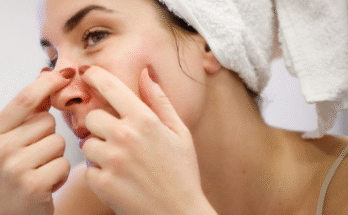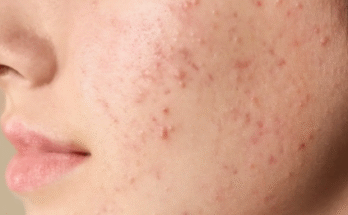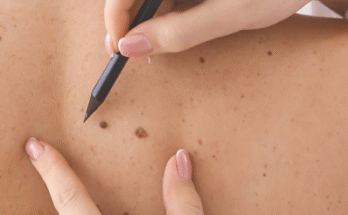Having smooth, radiant skin is something many people strive for, but breakouts can sometimes get in the way. While genetics and hormones do play a role, everyday habits also have a big impact on how our skin looks and feels. The good news is that small lifestyle changes, when practiced consistently, can help reduce blemishes and encourage a clearer complexion. Here are some simple daily habits that support healthier, acne-free skin.
One of the most important steps in any skincare routine is cleansing. Washing your face twice a day—once in the morning and once before bed—helps remove dirt, sweat, and oil that can clog pores. It is best to choose a gentle cleanser that does not strip the skin of its natural moisture. Harsh scrubs and overly strong products can cause irritation, which may actually make breakouts worse. Following up with a light moisturizer keeps the skin balanced, even if you have oily or acne-prone skin.
Hydration also plays a key role in skin health. Drinking enough water throughout the day supports the body’s natural detox process and keeps the skin supple. While water alone may not prevent acne, it helps the skin maintain resilience and recover more easily from irritation. Pairing hydration with a diet rich in fruits, vegetables, and whole foods can make a noticeable difference. Foods high in antioxidants, like berries and leafy greens, support the skin’s natural defenses, while reducing excessive sugar and processed foods may help minimize breakouts for some people.
Another daily habit that can benefit the skin is consistent sleep. When you get enough rest, your body has time to repair itself, including your skin. Poor sleep can increase stress hormones, which sometimes trigger acne flare-ups. Creating a calming nighttime routine, limiting screen time before bed, and sticking to a regular sleep schedule all encourage better rest and healthier-looking skin.
Managing stress during the day is equally important. Stress can impact hormones and oil production, contributing to clogged pores. Finding healthy outlets such as exercise, meditation, journaling, or spending time outdoors can keep stress in check and indirectly help the skin stay clear. Even just a few minutes of deep breathing during a busy day can calm both the mind and the body.
Good hygiene habits also go a long way. It is easy to forget how often our hands come into contact with our faces. Touching the skin transfers dirt and bacteria that can lead to breakouts. Keeping pillowcases, makeup brushes, and phone screens clean reduces the chances of bacteria buildup as well. For those who wear makeup, removing it completely before bed is essential so the skin can breathe and renew overnight.
Sun protection is another step that is sometimes overlooked in acne care. While sunlight can temporarily dry out pimples, too much sun exposure damages the skin over time and can lead to dark marks after breakouts heal. Using a lightweight, non-comedogenic sunscreen daily protects the skin without clogging pores. This simple habit not only helps with acne prevention but also supports overall skin health in the long term.
Finally, patience and consistency are key. Developing healthy skin habits is not about quick fixes but about long-term care. It may take a few weeks to notice changes, but sticking with a gentle routine often brings the best results. If acne persists or causes discomfort, seeking guidance from a dermatologist can provide personalized solutions and peace of mind.
Clear, glowing skin is often the result of small, mindful choices made each day. By cleansing regularly, staying hydrated, eating nourishing foods, getting quality sleep, managing stress, practicing good hygiene, and protecting your skin from the sun, you create the foundation for a healthy complexion. These habits not only support acne-free skin but also contribute to overall well-being, making you feel more confident and comfortable in your own skin.


